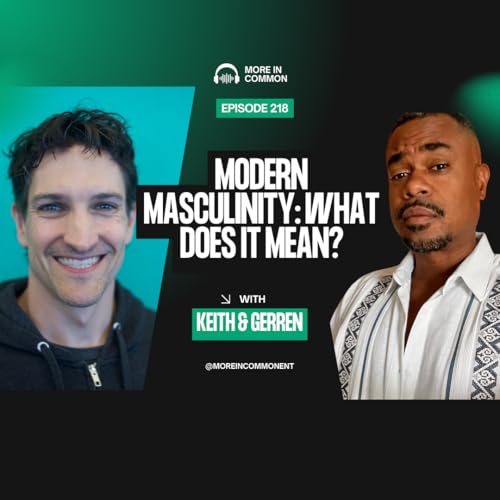More In Common Podcast
In this episode, Keith Richardson, Gerren Taylor, and Nicholas Miller unpack the confusion, pressure, and possibility surrounding modern masculinity. As social expectations shift, many men are left asking: What am I supposed to do now?
Rather than framing masculinity as something broken, this conversation reframes it as evolving—and explores how healthier models of masculinity can foster connection, purpose, and emotional resilience. The episode examines male identity, privilege, vulnerability, and the importance of supportive male relationships, while challenging shame-based narratives that leave men isolated. Through personal stories and sociological insight, the hosts offer a grounded, human approach to masculinity that prioritizes listening, growth, and belonging.
🕒 Episode Chapters 00:00 — Introduction Why masculinity feels confusing right now 02:03 — Masculinity in a Changing World What happens when social expectations shift without a roadmap 06:45 — “What Am I Supposed to Do?” The emotional cost of uncertainty for men 09:52 — Privilege, Backlash, and Defensiveness Understanding positional power without shame 14:20 — Masculinity Isn’t Broken Why masculinity evolves instead of disappears 15:52 — Healthier Models of Masculinity Strength paired with empathy and accountability 20:43 — Male Friendship and Community Why men struggle to build emotionally supportive relationships 24:10 — Listening Without Fixing The power of presence over performance 27:51 — Finding Belonging Beyond Bars and Gyms Rethinking how men connect socially 31:44 — Closing Reflections What growth-oriented masculinity can look like moving forward
🧠 Key Takeaways Masculinity isn’t broken—it’s evolving Men are navigating shifting expectations without clear guidance Vulnerability strengthens connection, not weakness Privilege is positional, not personal Listening without fixing is a critical relational skill Healthy masculinity requires community and support
💬 Memorable Quotes “Masculinity isn’t broken—it evolves.” “We don’t need less masculinity, we need healthier models of it.” “Sometimes, you just need to listen without fixing.”
🔑 Keywords & Topics modern masculinity, male identity, men’s mental health, privilege, vulnerability, gender roles, emotional intelligence, male friendship, masculinity studies, social connection, More In Common Podcast
More In Common Website | https://www.moreincommonent.com/ Instagram | https://www.instagram.com/moreincommonent Twitter | https://twitter.com/MoreInCommonent Facebook | https://www.facebook.com/moreincommonpod
 Jan 23 202635 min
Jan 23 202635 min 32 min
32 min Jan 9 202630 min
Jan 9 202630 min Nov 25 202528 min
Nov 25 202528 min 30 min
30 min Nov 14 202529 min
Nov 14 202529 min Nov 7 202531 min
Nov 7 202531 min Oct 31 202532 min
Oct 31 202532 min
